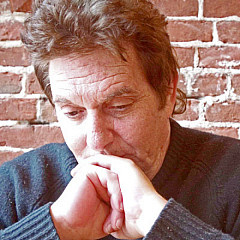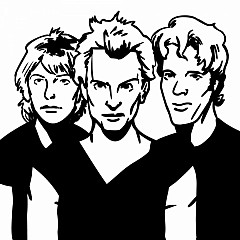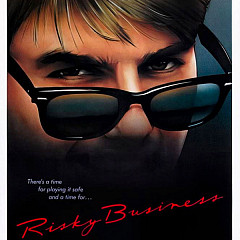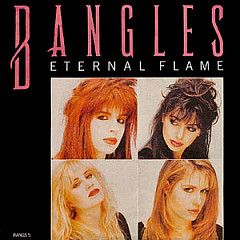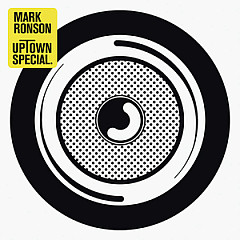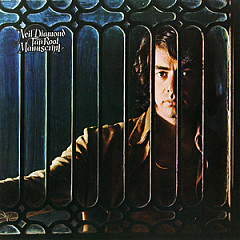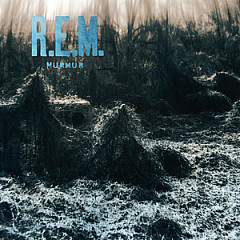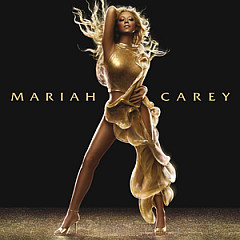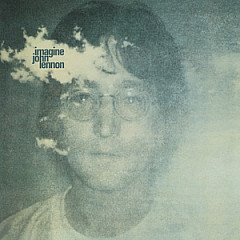Those songs about drinking beer in the back of a pickup truck - not Catt. She's more about what happens when life is processed through the heart. It's a style that works far outside the confines of country, as both Adam Lambert ("Underneath") and Cher Lloyd ("Human") have recorded her songs. It also worked for Jana Kramer - when the One Tree Hill star was looking to make it in music, it was Catt's songs "Whiskey," "Why Ya Wanna" and "Love" that kickstarted her singing career.
In this wide-ranging discussion, Catt explained the inspiration behind many of her songs and gave us a look inside the Music City machine.
 Carl Wiser (Songfacts): Catt, where did you grow up?
Carl Wiser (Songfacts): Catt, where did you grow up? Catt Gravitt: I grew up in a little city called Coal Valley, Illinois. It's about two-and-a-half hours outside of Chicago, but right on the Iowa-Illinois border. Population was 3,000.
Songfacts: And how did that upbringing affect your songwriting?
Catt: Oh my, gosh! I think it was almost crucial for me. But you know, ironically, when you first come down here you see all these guys with John Deere hats and T-shirts on maybe trying to be more country. Well, my dad worked at John Deere his whole life, so we had John Deere swag busting out of the closets.
So I am raised basically in Moline, Illinois where it says on all those John Deere T-shirts. And my former husband, he used to wash all of his dad's John Deere tractors - I think he had over 30 of them – and they always said Moline, Illinois on the tractor. He always wondered where that was, and then he ended up marrying somebody from Moline. So it was like a big joke with us.
A lot of people on our street had farms. We didn't. But Dad worked at John Deere so every time a new tractor would come off the assembly line, we would go to go witness it like a new car showing. So it's pretty easy for me to write about a tractor.
Songfacts: In Nashville, it seems like there are people trying to "out-country" each other. Like, "I'm more country than you." Does that really happen?
Catt: Yeah. And I understand it. There's a lot of people moving here from New York and LA, and a lot of those people did not have that kind of upbringing, and it doesn't come easy for them. It would be like me trying to write about the bush in Australia.
If you didn't have that upbringing, you're sort of making it up. You don't know. But for somebody like me, I would go in the backyard and chew on spearmint leaves - my life was a country song. Not as much as some people that were raised as farmer's kids, but when your dad works at John Deere and there's only 3,000 people in your city, you get a great taste of the country.
Songfacts: Are there any of your songs that have real personal stories from your life in them?
I sat on the floor the whole time and wrote that day. I thought, "I just need to write this for myself." The verses sound very simple, and some of it cliché, but the chorus is a little serious. And it was really coming from my bones - I just wrote it. Jimmy was so kind to let me weep that day.
I just wrote it for myself, but it's not that specific and it ended up being Jana's first single off of her sophomore record. I've written other songs that are really specific, that maybe you don't really want people to see you that transparently. But I really pull from that place, and then a lot of times it ends up on the radio and people just think it's a nice, sweet, little song. It ends up hurting sometimes when you hear it.
Songfacts: Really? Is there a song that still hurts you when you hear it?
Catt: Yeah. It's that song. Yeah. And the funny part is, it's a happy, very simple song about believing in love again. But it came at a painful time.
Songfacts: I think Jana Kramer was actually going through something very similar, which must have made it relate to her. [Kramer was going through a breakup with Brantley Gilbert.]
Catt: Well, after Jimmy and I wrote it, he demoed it up and I sang the demo. Then I just sat with it for a couple days. Jana and I are pretty close - I'm actually in her wedding that's coming up - and she's been through a lot. She's a really good friend, and she resonated with it clearly. We didn't know if the label was going to like it, but they jumped on it.
So from that standpoint it was a blessing. As a songwriter, it's really a blessed chosen profession, but we're nothing without the artist. Honestly. And any songwriter who thinks they are, they're crazy, because you have to have a voice for your songs.
I have such a deep appreciation for an artist that goes out there with a song, especially if they didn't write it. They go out there on the road. They promote it. They do radio tours. They're really busting it hard on the road for that song to be heard. So it's partnership. The songwriter pulls from their bones, and sometimes it's just something that you just regurgitate out and it's not personal, but it really is a partnership. I'm very, very respectful of an artist having to step outside, getting out onstage and maybe finding out two hours before they go out that they just lost their favorite grandmother and they have to stand out there in front of 10-20,000 people and give those people what they came for. As a songwriter, you don't have to do that.
Songfacts: Another song you wrote for Jana Kramer is "Why Ya Wanna," which also is a bit of a heartbreaker. Tell me about coming up with that one.
Catt: You know what? That was just a great, fun, day that wasn't personal. That was with Chris DeStefano and Ashley Gorley. Ashley came in and had a great vibe, and just started off running on the song, then we dove in on it. Ashley had to leave at like 3:30 to go pick up his kids, which I completely love and respect that about him. And Chris and I finished up the demo.
At the time when I was coming up, it was Trisha Yearwood, Reba McEntire - and I didn't sound like any of those people, so I chose not to sing a lot of my demos. And then I was introduced to Jana by her former manager. Every now and then you click with an artist vocally to where they resonate with your tone - they resonate with how you sing and they resonate with the words behind what you sing. And Jana and I just had this instant click.
I had written with her a couple of times before "Why Ya Wanna." I remember the very first writing appointment with her. It was very personal to her because of what we were writing, and she still doesn't want to release that song until later because it's so personal. But I remember thinking I missed hearing Deana Carter on the radio. I missed "Strawberry Wine." That tone, it really stood out, and I thought, "Man. Jana really has that." And so we just clicked right away.
Chris DeStefano did a killer job on the demo. I sang lead, and he sang some background vocals. Literally that night, I sent it to her manager, and Jana called and said, "I'm recording this." We didn't know that it was going to end up being the first single. At the time, Taylor Swift was the last female artist with a debut going all the way to #5 ["Tim McGraw" - actually it only made #6]. I think Carrie Underwood had done it - like a #1 before that ["Jesus, Take The Wheel"], but no female for like five years had a debut song go to the top five. And then "Why Ya Wanna" went to #3.
Songfacts: In Jana, you're dealing with somebody who is a very photogenic actress, and the video for that song is very compelling and tells the whole story with all these beautiful people. Did you think about the video when you were writing the song?
Kristin found this amazing cabin way out in the woods. It belonged to a couple that didn't even speak English - I think they were from Spain. It was this beautiful couple that had this gorgeous little nook in the woods that was basically off the grid, so we were just out in the woods. I couldn't even tell you where it was.
As I was watching, it reminded me of when Faith Hill first came out, how instantly she just became the character, and people just fell in love with watching that.
Songfacts: Tell me about writing the song "Whiskey" for Jana.
Catt: You know, I really enjoyed that, because I wrote that with Sam Mizell, and it was his first country song to be recorded ever - he is known for Christian songs.
He said, "I've got this idea that I've been wanting to write for a long time. I've thrown it out to many people and nobody wants to write it with me." And he said, "Should've just called her Whiskey." And I said, "Oh. I love that. Let's do should've just called him Whiskey, and let's write it about a guy." And the lyric just started dumping out.
It happened really fast. That was one of my favorite songs on Jana. I was vocal producer on half of that record too, and I was thinking that was going to be the one. She took a risk, because she's so creative, and had done so much film work, and just did a little edgier video - might've been too edgy for country music.
Songfacts: Do you go to the video shoots often?
Catt: You know, every now and then the artist will say, "Hey, I'd love for you to come." And with Jana, she's just been such a dear friend, so every now and then I would show up on them. But for the most part, they do them so fast and sometimes in between their touring schedule, so you don't even get a phone call or invited because they're just trying to squeeze it into their busy schedule.
Songfacts: We talked about how, a lot of times, there's a lot of country stuff going on in Nashville. But a lot of the artists that get these Nashville songs are not who you would associate with country music. Adam Lambert, for instance. Kelly Clarkson. These are very mainstream artists, and you've had the chance to work with them. How does your approach change when it's not a traditional country artist that you're writing for?
Catt: I've always loved the rhythm of pop music. I think for a long time in country music there wasn't really a strong cadence, rhythmically, that you had to stick to. It was more about how much you could squeeze in lyrically - it wasn't about the math of the rhythm.
I probably should've focused on the piano, but in pop music, the main instrument that I fell in love with was the drums, so that was my first instrument. I was a drummer. I loved playing the kits. It was just this easy passion of mine. I don't play, but every now and then I'll get on the drum kit just to make somebody laugh, because it's still just so fun and such a fun release.
But rhythmically, pop music is so fun, and it's happening in country now. I believe it's because of a lot of people who wouldn't be drawn to hip-hop lyrics. The country listener, years ago, in the Bible belt that we're raised in and around down here- you wouldn't be drawn to hip-hop lyrical content, but a lot of people are drawn to the rhythm.
I was managed by Chris Oglesby and LeAnn Phelan at 19 Entertainment, and 19 was owned by Simon Fuller who owns American Idol. They had a management company here for a while, and LeAnn said, "What's your goal?" I said, "Well, I really want a #1 in Christian, a #1 in country, a #1 in pop, and then whatever fun falls in between that."
And since working with her, I've got two out of the three. With pop music, I sort of became obsessed around 2008, and I still do it. For a while, I was going to LA eight times a year for a couple of years. Writing pop music was freeing for me because sometimes in country people say, "Oh you can't say that." It's getting so much better now, but I loved the freedom of just emoting and saying whatever I wanted.
And then my buddy Robert Marvin and I got on a run, and it started with the Kelly Clarkson song ["Honestly"]. I wrote that for a friend that was in such deep pain. That was from an observer's standpoint, that I just needed to get that lyric out of me, not thinking that anyone would be interested in it. Because you really have to sort of follow it, going, "What is she even talking about?" But then, that song, Kelly Clarkson and Adam were sort of fighting over it.
Kelly was just like, "Well I'm recording it." And I didn't even know she would resonate with that lyric, because the opening lyric is, "Could you love somebody like me?" It's written more for someone that feels, at the time, odd man out. I remember meeting her for the first time. I said, "I can't even believe you resonated with that lyric." And she says, "I am that lyric." Which is just so awesome.
I fell in love with her even more, because I thought, "She is that lyric." I love her. And then Adam asked to write with us because of that. So then I went out to LA and not only did we get to write with him, we ended up co-producing his vocal. That voice is a force, and it was just a joy to work with him. I hope that he continues to be heard because he's one of the most phenomenal male voices. He really is sort of Freddy Mercury reincarnated.
Songfacts: The fact that Queen fans haven't come out with pitchforks tells you something about him.
Catt: You know, a lot of Queen fans have kids now, and they still want to hear somebody sing like Freddie.
Cher Lloyd is also a really cool artist. She recorded one of our songs – Robert Marvin and I again – and we got to produce her vocals. There is a freedom in writing pop music - it can come from more of a stream-of-consciousness place. But the math, especially a lot of the Swedish songwriters, they're very insistent upon the mathematics of the rhythm so that it all adds up to the same syllables perfectly.
Songfacts: The math is important I'm sure, but there's something behind it if you don't have that feeling. Your Cher Lloyd song, "Human," there's a lot that you can't plug into an algorithm.
Catt: Right. As a matter of fact, I was a little bummed, but in the original chorus there are two lines that were pulled out. I have such respect for the man that produced that record, because he's got so many hits - he was sort of Max Martin's protégé. He called and said, "Catt, the math just doesn't make any sense." And I said, "But if you remove the last two lines the lyric doesn't make as much sense."
So there is two lines that are missing from the original. One line was, "It's a beautiful thing to fall," and he took that out because the math didn't make sense. So he repeated a couple of "Everything that glitters is not always gold," and that's not how the original chorus went.
Songfacts: That's got to be frustrating, but what can you do?
Catt: I know! And you know what? I know a lot of songwriters get very upset when that happens.
Every songwriter has the right to say no, especially if it's very personal and they don't want it mangled, but I just come from such a place of gratitude for somebody resonating with my song. So if someone resonates with it, then it's bound to be heard by more than your mom and your dad.
Songfacts: What was your state of mind when you wrote that song, "Human"?
Catt: Well, that was being hard on myself. I was going through a time of making mistakes, which is very uncomfortable for somebody like me. As a songwriter, you end up writing all of these broken songs that come from that kind of a place. And that song is very, very personal.
When Cher was singing it back through the glass to Robert and I, I got so choked up. Cher's manager was there. She used to work with Pink, and she said, "Gosh. No one's really pulled this vocal out of Cher before." My love is vocal producing – I love working with artists at the microphone, and I love pulling very special emotion out of them instead of if they would just run the song down and they're not pulling from it.
I mean, you can hear it. That's why Bonnie Raitt's "I Can't Make You Love Me" continues to be one of the greatest songs of all time. If some artist just bulldozed through that lyric in a bluesy kind of manner, it wouldn't be special, but when you combine that lyric with that emotional maturity, it becomes a classic.
When you get lyrical content, gorgeous melody, and an artist to emotionally deliver it, you can create one of the best songs of all time. But these days, nobody's stopping long enough to really sing the lyric. I understand it and I have an appreciation for it: they're getting locked in.
You do get frustrated. You never want to be pinned in a lyrical or melodic corner. It is fun to explore - put a hip-hop rhythm inside of a country song. There's a hip-hop artist named Yelawolf. He's from the sticks of Alabama. Here's a guy that's lived a country life, and he's a hip-hop artist. And man, when you listen to those lyrics, it is not like someone that grew up in the Bronx, so I love all of the mixture of it. To me it's another great opportunity to keep bending as a songwriter.
Songfacts: What you're describing in the Cher Lloyd session sounds like a pretty distinct opportunity because you're able to write the song, and then go in there and coach the singer through the song.
Catt: Yeah.
Songfacts: So what do you tell Cher Lloyd while she's doing your song?
Catt: Singers like Adam, Kelly and Cher with a lot of a range can get so lost in their instrument, and I think it happens with a lot of producers: They get the vocal runs and everything that they need, but there's no emotion to make it compelling and make you actually stop for a minute. I think that's the main difference between why people are touched and why it's just another song. And when you stop a singer in the middle, you find out very quickly how wounded or how personal they take it.
There were a couple of times where I was telling Cher, "I'm just not feeling it. I need you to sing me the lyric. Stop singing the melody, and sing me the lyric." And then it just comes out different. It's really exciting I have to say. I could probably spend the rest of my life just vocal producing. I take it as a full responsibility of my job when I walk in there to make sure that the songwriter's story is told with the artist's voice.
Songfacts: So that must be kind of frustrating if your song goes out in the wild and you hear it, and it's not the vocal you wanted.
Catt: Yeah. It is. Because everybody has different levels of being broken. There's an artist I'm working with now, she sounds like a very young Patty Loveless, and because her voice is so gorgeous, it's hard to get her to lighten up and to get fun to come across the microphone.
When you get singers with voices like Lee Ann Womack and Trisha Yearwood who do stunning ballads and mids really well, sometimes you have to literally ask them to smile while they're singing. [Laughs] So it's kind of funny actually.
Songfacts: The Adam Lambert song "Underneath" is another big, vulnerable song you wrote, just revealing everything. Can you talk about that song and putting it together?
Catt: I wish that could've been a single. We thought that could've been an award show performance. That was me, Tom Shapiro, Josh Crosby, and Robert Marvin. It is to this date one of my favorite songs. Tom Shapiro is such a mentor of mine - I think he's had 26 #1s. I can't remember how many. But he's just a true classic songwriter that I feel blessed to have written with. He looked at me and he said, "That'll go down as one of my favorite songs," which is such an honor to me. It didn't chart, it wasn't a single, but I will never forget writing it that day. We all looked at each other like it was sort of a peek inside all of us. In the writing room, we were all talking about our own personal vulnerabilities.
When we recorded Adam's vocal on that, he stepped out in the middle of the song because he had to take a phone call. It was with VH1 - he was doing a Behind The Scenes with them. He came back in, and he was very upset. He saw the footage and for 45 minutes they wanted to talk about him being gay, and for five minutes they wanted to talk about his music.
We all had this beautiful discussion about all of us, and him really sharing his vulnerabilities, and then he got back up to the microphone and sang that song. I truly think the world of that guy. He really was baring his soul that day, and when I listen to him sing that song, it just kills me. Kills me.
Songfacts: What was it like, working with him on the song "Runnin'"?
Catt: Well, that was really fun. I think everybody's a songwriter, you just have to be half nuts to pursue it. Robert and I were flying out to LA, so we were on the plane together. And he said, "I'm going to play you 10 or 11 tracks." Some were empty with no vocal, and then some had vocal melodies that were already on them. He said, "I want you to just pick something that you're drawn to." So I listened to all of them, and I said, "This is the one." I wasn't really drawn to anything else.
After we did "Underneath," Adam's management told us, "If Adam didn't enjoy the day, he'll just say, 'thank you guys.' If he did enjoy the day, he'll probably ask you to write." And he asked us to write. So Robert said, "I have this one track, and Catt and I really love it and want to see what you think." Well, he loved it, so we started writing on it. I could tell that he had some deep things that he wanted to say in his heart, so we let him run on a lot.
After we finished it, Robert said, "Catt, you know where you get your hair done?" And I said, "Yeah." It's an Aveda Salon. He said, "Well, the guy that runs the front desk at Aveda, he's the one that did the track. I didn't want to tell you until afterwards."
So here is this guy who's working his butt off to be in the music business, but he's answering phones and making appointments at Aveda. He did the track. He did the vocal melody. We tweaked some of it, but for the most part, it was the only song that I was drawn to, and it was a guy that worked at Aveda Hair Salon.
Songfacts: Oh my, gosh!
Catt: I am so open to that kind of stuff, because you never know where that sort of thing is going to come from. You should never underestimate where the divine flows through, and sometimes the divine flows through the most unlikely people.
Songfacts: Something I noticed about a lot of these songs is that there are two sides to them. For instance, in the song you wrote for Jake Owen, "Alone With You," there's Jake, and there's the girl that's driving him crazy. Two sides to the story.
And you know, it's funny with "Alone With You," because [co-writers] Shane McAnally and J.T. Harding always teased me because we were done so fast - it was done in like an hour and a half. Then, as songwriters often do when we're either done or nothing else is coming out, we got ready to go to lunch. But then I looked at them and said, "You guys, I'm just not feeling this chorus."
And they were like, "Really?" Kind of looking at me like, "I'm hungry right now." I think they were kind of mad. So we gutted the chorus and started over.
We started talking about our personal situations, and we could all relate to it really strongly. We just assumed that a girl was going to record it, because it was such a vulnerable lyric and it's hard to find a man in country music that is willing to express that. But then Jake did it. He's a very sexy guy. Oh my Gosh! It was just a great combination.
Songfacts: A lot of times you end up being the only woman in the room.
Catt: [Laughs] You know what? Let me put it this way. It's a good thing that I had all brothers. I don't have any sisters.
Songfacts: I guess that trains you for it.
Catt: Yeah, it really did. And you know what? It's changed a lot, which is awesome. I think it's so awesome that there's so many girls on the rise that are coming out - they're 15, 16 years old playing rocking guitar. I wrote with Meghan Trainor a couple of years ago. I didn't know much about her, and she had only been to town maybe once. I walked in there, and she had a beat going. She was working on a track and had pulled the microphone over and started singing. There's a new generation of women coming up which I think is really incredible.
Rascal Flatts has always been really amazing about honoring the songwriter – just unusually amazing. I remember a couple of instances. They had a huge luncheon at the Country Music Hall of Fame, and they had every songwriter stand up that had ever been on 10 years' worth of their music. And then that night, they gave everyone this really beautiful plaque that had every single songwriter's name engraved on it that had been in their 10-year body of work.
There was a girl next to me and she leaned over to me and she said, "Are you seeing what I'm seeing?" And I wasn't seeing it, probably because it's so comfortable for me, but she said, "There's only eight of us girls here." And I think there were between 60 and 80 men. So at the time, it was under 10 percent women that had been involved. There were only eight female songwriters on 10 years worth of work. Clearly they didn't do this intentionally, it was just more about what a rarity it is. And then Kye Fleming, who I do business with, she told me that there was hardly ever a woman around back in her day, and she ended up being songwriter of the year four times in a row. When she was inducted into the Country Music Hall of Fame, it was just her and Tammy Wynette.
Now I think women are just coming from a different place, and it's been really fun to watch. My mother raised me to get out there and try anything I put my mind to, but this other generation of girls are coming up that not only are they going to try, they're doing it. It's really so fun to watch, and there will be a female president pretty soon, whether or not anybody likes it. All these firsts are coming, and from a human standpoint I just think it's beautiful. I think it's long overdue. And when politics, and music, and sports, and all this stuff is set aside, I don't think anyone should be told that they cannot do something.
Songfacts: Was there a time that you wouldn't have felt comfortable telling a group of male songwriters to get back in there and rework the chorus?
Catt: No. [Laughs] I don't think I cared. I have just two brothers - one older and one younger – but that was enough for one to punch me while the other one was saying, "Hit her harder." So it was a great training ground - it was fight or flight. Once that door closed and my parents let my older brother babysit, I knew that we were going to play waitress and my brother was going to tell me how to prepare his food. I was cooking for him, but what he didn't know is that I would put Kaopectate in his milk or his Coca-Cola.
I realized pretty quickly that this is not male or female. I have something to say, and if somebody doesn't honor that, it's probably not a good idea if I ever write with them again anyway because they clearly have a problem with girls. That way you find out really fast who your friends are and who your co-writers are, and there is nothing more fulfilling than to write and have success with your friends. I love being on a team - it's always been really fun to me. I love singing. I never stressed out about singing the lead. I was always loving being on the team or singing harmonies. I really admire when people only write alone and they never, ever co-write because, from my standpoint, it's a very lonely place. I love co-creating with people.
Songfacts: One song that you wrote with a group of other guys, and for a male artist, is the Eli Young song, "Every Other Memory."
Catt: Yeah.
Songfacts: Tell me about writing that song.
Catt: That was really fun because that was actually a writer camp. Matthew Morrison, who was the lead on Glee at the time, he was doing his first record so that camp was put together just for him. He wasn't there - it was for a bunch of songwriters. Some people came in from LA and New York - I think there were 15 or 16 of us.
That song was Josh Kear, Chris DeStefano, and I. That was Chris DeStefano's first country song that he's ever had recorded. I'm so proud of him, he's just kicking butt in country music now. I knew that day when I watched him. He's a very talented producer. I told him, "You are going to do so well here," and he's just killing it. He's doing such a great job. And Josh is such a talent and clearly doing the same thing. So that was a fun day.
I told those guys, "God! It'd be great if we had a ukulele," so I went to Guitar Center, bought one and came back. And in about 30 minutes, Chris taught himself about six chords, and ukulele was on the song.
Songfacts: Who came up with the whole idea that every other memory is good, so I can't just get rid of this?
Catt: That was Josh. Josh came in with that title, and we took off fast. Chris was producing in the middle of it. We were doing stomps with our boots on the floor. But Josh came in with the idea and the concept.
Songfacts: You talked about Rascal Flatts earlier, and you wrote a song for them: "Where You Are." Who is the "you" in that song?
Catt: That was my first drive to Muscle Shoals. A lot of people told me that I need to get down there. There's something in the water down there.
I had heard about this guy named James LeBlanc. It was our very first writing appointment, and we'd never met each other. It was just this sort of spiritual connection that we had.
And the "you" was God. We just wrote about God that day. There's a few lines in there that are stretching it for - it sounds more of a relationship. But James and I pulled from it.
That was just truly a God-given song. And gosh we were blessed. It was an album cut, but they used it on their Me And My Gang Tour. They opened with that song a couple of years later. That record sold over five million copies, and it was our first cut together.
I asked Gary [LeVox] why he recorded it, and he said, "Because when I sing it, it feels like a Baptism." And so then James and I continued to write, and some of my best experiences have been down in Muscle Shoals.
We wrote it at FAME Studios. I got to know Rick Hall fairly well. I think he was in his early 70s, and I'm just thinking, "I hope I have a drop of his passion when I'm getting up there in years," because he would just say. "Hey! Come check out this girl that I just signed and I'm going to produce." And I'm thinking, "Who is this guy?"
Songfacts: What's amazing is that you can still go down there and record with the Muscle Shoals Rhythm Section. They're still down there.
Catt: And you know what's amazing? They still have the same shag carpeting. They do not update that studio, which is the reason why it's so funky and so cool. And they still use the tape machine a lot.
Songfacts: Yeah. When people come down, that's what they want.
Catt: That's what they want. And we would record a lot of demos on it.
Songfacts: How many songs do you write in a week?
Catt: That's a good question. I don't know if it was just out of paranoia, but years ago there were times when I could write 10 songs a week - I would do two a day. Now, anywhere from two to five is a lot for me. A lot of us here are writing Monday through Friday, and usually when you're writing, you get a song a day.
But you do learn very quickly. I think when you're a young writer, there's a little bit of paranoia because we actually have a quota, and you want to make sure that you're writing, writing, writing. A lot of times we don't stop long enough to make sure we're pulling from some real emotion. And you know, you can go through phases in your own life where you feel like a factory, and then other times when you have to pull back and really start striving for quality versus quantity.
It's so different for everyone. I know people that write 300 songs in a year. And then I remember a writer named Hugh Prestwood, who was known for writing 12 songs a year, but most of those 12 songs would get recorded and some would become hits. This is the guy that wrote "The Song Remembers When" for Trisha Yearwood. Gosh, what a phenomenal song. But he would just take a song and craft it, craft it, craft it, and not waste a really good hook.
A lot of us are moving so fast. I know some people that will take their great song titles or great concepts and they jump in a room and it moves really fast. And they walk out of the room and they're really disappointed, because it didn't turn out the way that they wanted.
Songfacts: Do a lot of these songs get published with your name on them and then they just sit there?
Catt: Sure. Yeah. There's a job the average person doesn't know about: You can actually be hired as a song-plugger. They are warriors in this town. They go out and they take what they think is their best shot for that particular meeting, and sometimes they're going to believe in a particular song and they're not going to stop until a song is recorded. I know of one song that was 13 years old and then it finally got recorded, so they do find their homes. But sometimes I really believe that the songs are just written because we have to write them.
Songfacts: Well, you're not going to have your best day at work every day.
Catt: Absolutely. There are people that get on a roll and they'll get 15 #1s in a year. And then the next year they can't get arrested. It can be a very rough place, but it's just such a blessed profession if you just stick to your own journey and your own path, and you stay internal and don't go external. And try your best not to live by comparison, which we all do to some extent. If you stay there, you're never really going to enjoy your own path.
Songfacts: What's the hardest part about writing a song?
Catt: To me, the hardest part about writing a song is staying true to the original inspiration that came through. If something came from the divine, which I believe it does, trying your best to stay true to what the original inspiration of the thought was.
It's hard, because our commerciality gets in the way. Of course you want to be successful, but sometimes commerciality will take over and it gets a little watered down.
When you're co-writing, one person will throw out a title, and you have to jump into somebody else's body and try to figure out: "Where are you coming from with that?" And then sometimes it'll just turn out. You can get the craft down to a "T" and you can craft a song, but if we were all such great craftsmen, we would all be getting a #1 every single week, and that's just not the case. A lot of times it's really digging.
Songfacts: I can see how it can be incredibly frustrating when you have this idea, and then four hours later you look back and go, "Wait. We're nowhere near where we started. What happened?"
Catt: Yeah. It's true. And a lot of times you just run with it, but it turns out average, which is kind of a drag because you don't call your co-writers and say, "I want to try writing that again with someone else." Except every now and then I've seen people do that. Out of respect, you say, "If you guys don't mind. It won't be the same direction. I won't use any of the lyrics or the melody. But I've just got to take another shot at this." Every now and then, it does happen.
March 23, 2015
More Songwriter Interviews

